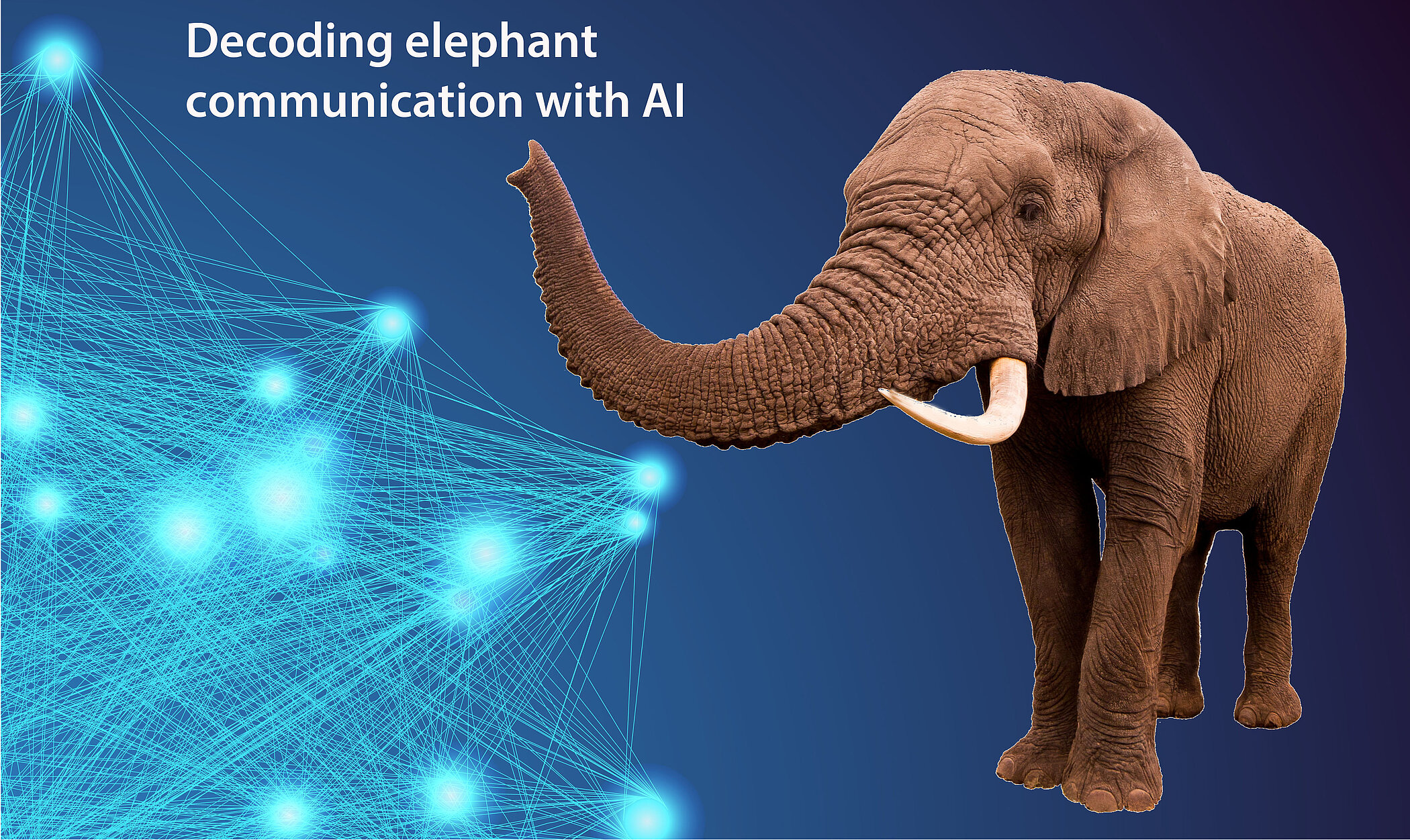Decoding elephant communication with AI
Description
To secure the survival and well-being of elephants in an increasingly human-dominated environment, it is necessary to have a deeper understanding of their behaviour, cognition, perception, and communication. African elephants (Loxodonta africana) communicate extensively using the vocal modality. They transmit biologically relevant information via their calls, yet, each call is unique, differing in multiple acoustic parameters in the time- and frequency-domain. To decipher the language of elephants, it will be necessary to work with extensive data sets that can hardly be manually or semi-automatically analysed by humans.
Currently, it is unknown which acoustic patterns encode relevant information. Our central question is whether Artificial Intelligence (AI) can help to decode elephant communication. We will approach this
question using advanced acoustic models combined with machine learning(ML) techniques on one of the largest dataset of annotated/curated African savannah elephant vocalizations to date, that Angela Stoeger and her team collected over the past 20 years. Our primary objective is to develop a computational model that enables identifying acoustic cues relevant for elephant communication in a combined data- and knowledge-driven process. This interdisciplinary project between biologists and computer scientists tackles the challenge of decoding elephant communication for the first time. We will develope a computational model for elephant sound production and hearing and will evaluate its validity in the field.
This is connected to the projects:
General Information
Funding: WWTC
Principal Investigator: Angela Stöger-Horwath
Duration: July 2024 - June 2028



